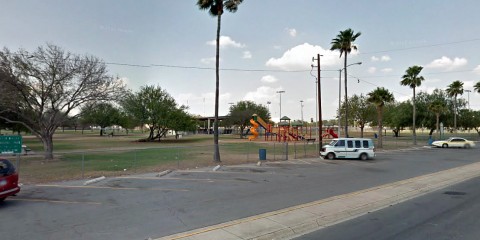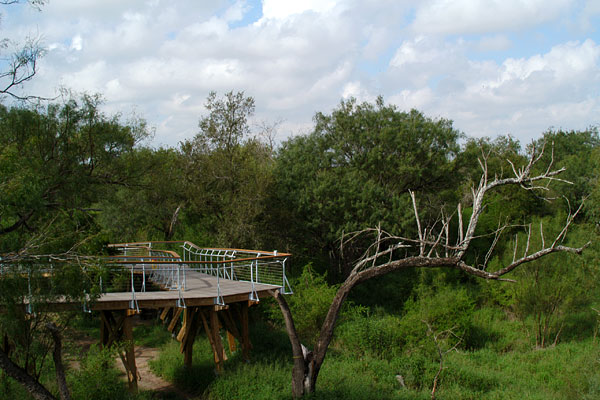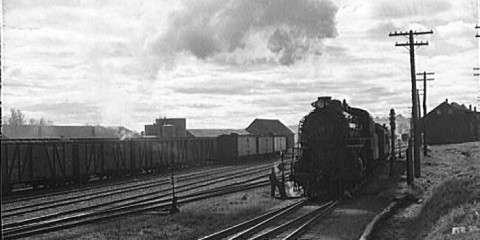
Municipal Park
Set amidst the charming city of McAllen, Texas, the McAllen Municipal Park, located at 1921 N. Bicentennial Blvd, is a sprawling jewel of recreation and leisure. The park stands as a testament to the city’s commitment to fostering community engagement, fitness, and outdoor fun. However, the attraction extends beyond the conventional to an often overlooked group of hobbyists – Metal Detector enthusiasts. The keyword, “McAllen Municipal Park,” is not just synonymous with outdoor activity, but also metal detecting opportunities, which is a thrilling adventure in itself.
Spanning a generous area, the McAllen Municipal Park is adorned with Stutzenbecker Baseball Fields, Soccer Fields, and a Municipal Swimming Pool. These spaces are not just platforms for competitive spirit and relaxation, but also beckon metal detector enthusiasts with the promise of unearthing potential treasures.
The park’s grassy expanses that encase the baseball and soccer fields serve as an alluring canvas for hobbyists. These fields, having played host to numerous games, tournaments, and events over the years, are sure to hold a trove of lost coins, jewelry, and perhaps even historical artifacts waiting to be discovered. Whether you’re sweeping your metal detector over the soccer fields after a bustling local game or weaving between the spectator benches of the Stutzenbecker Baseball Fields, the thrill of a possible find is ever present.
The Municipal Swimming Pool is another promising site for treasure hunting. Surrounding areas and nearby paths, often teeming with people during the summer months, may yield a range of lost objects, from forgotten pennies to dropped trinkets. However, remember to respect the pool area and its users’ privacy, making sure your pursuit does not interfere with their enjoyment.
In addition to the active zones, the park is replete with children’s playgrounds. These areas, filled with sand, are a treasure trove in their own right. Sand, being a great conductor of metals, amplifies the efficiency of a metal detector, making your search more fruitful. The playground equipment and sandboxes where children often lose small items, such as toy coins or medallions, present a tantalizing challenge for the detector-wielding explorer.
Yet, the prospect of metal detecting in McAllen Municipal Park extends beyond these hotspots. The vastness of the park also includes serene picnic areas adorned with barbecue grills and tables. Scanning around these areas after a busy weekend may reveal lost keys, coins, or perhaps even the occasional piece of jewelry. But remember, the golden rule is always to leave the areas as clean and undisturbed as you found them.
McAllen Municipal Park, a bustling center of communal gatherings and family events, is etched with narratives waiting to be unearthed by the metal detecting community. While detecting, it’s possible to uncover objects that reflect a slice of local history or forgotten moments from the lives of park-goers, transforming the hobby into a historical and sociological exploration.
From the baseball fields to the soccer grounds, the swimming pool to the playgrounds, and the picnic areas to the barbecue grills, the park offers a diverse range of environments to explore, each with its own hidden riches. So, next time you think “McAllen Municipal Park,” remember that it’s not just an excellent recreation facility. It’s also a captivating destination for Metal Detector enthusiasts, ripe with potential treasures waiting to be discovered beneath its vibrant surface.
.
A beautiful neighborhood park surrounded by mesquite trees.
Play equipment and picnic tables make it a wonderful place to relax.
A park designed for the active. Kids will love the playground equipment and the athlete will enjoy the basketball court and jogging and exercise trail.
Picnic tables are also available for family outings.
Nestled in the heart of McAllen, at 1100 Robin Ave, Robin Park stands as a charming urban oasis, offering visitors a delightful blend of recreation and relaxation. More than just a playground, it’s a vibrant sanctuary where laughter fills the air, and memories are made.
As you step into Robin Park, you’re greeted by a sprawling playground that is sure to ignite the imaginations of young explorers. The park features a whimsical array of slides, swings, and an obstacle course that promotes active play and provides endless hours of fun. The soft, safe playground surfaces ensure worry-free adventures, while the wealth of equipment caters to a wide range of ages and abilities.
Nestled amongst mature trees, Robin Park provides a serene setting that’s perfect for picnics. The park’s shaded picnic tables are a noteworthy highlight, offering respite from the Texas sun and serving as an idyllic spot for families and friends to gather, eat, and unwind. The canopy of trees above, the chorus of birds, and the gentle rustle of leaves set the tone for leisurely, outdoor dining experiences.
In addition to its recreational features, Robin Park is a testament to McAllen’s commitment to preserving its green spaces. The manicured lawns and well-maintained grounds make this park a jewel in the city’s crown.
Whether you’re looking for a place to let your kids run free, a tranquil spot for a picnic, or simply a slice of nature amidst the urban hustle, Robin Park is the perfect destination. Come explore this verdant haven in McAllen, where every visit promises to be a delightful escape.
Named after long time City Manager Bill Schupp, this park is perfect for all. Children can play on the many swings, slides, and merry-go-rounds.
Those that enjoy exercise will love the fitness trail.
And finally, picnic areas tie it all together to make it a wonderful place for a family gathering.
This site plays host to a number of special events as well as McAllen’s Winter Polo League in January through March.
A neighborhood park dedicated to police officer Rosalyn Suarez. The park was specifically designed with playground equipment for the disabled individual. Picnic tables and plenty of open play areas are also available.
A small .25 acre quaint park with a western flavor that features playground equipment. Small yet a wonderful spot to relax.
A 37 Acre park featuring a softball complex, playground equipment, picnic areas, and four barbecue pavilions. The pavilions can be rented through the Parks & Recreation Department. The Westside Softball Complex can also be rented for ASA-sanctioned tournaments.
This park offers a variety of activities for everyone. A large picnic area surrounded by ash and mesquite trees provides a wonderful atmosphere for fun and relaxation. Children will enjoy the playground area that has plenty of play equipment. And the sports enthusiast will love the basketball court, sand volleyball court and softball/baseball fields. Airport Park also features a barbecue pavilion that can be rented through the Department.
2201 S 26th StLocated on land known as Porcion 46, ceded by the crown of Spain to Don Jose Matias Tijerina in 1767, the community of Havana was named for Havana, Cuba, where Tijerina had stopped on his journey from Europe. Among the early settlers here were the families of Josefa de la Garza Salinas and Civil War Union soldier Patricio Perez. A frame church was built in 1891 and named for St. Joseph. Descendants of early settlers still live in the area. Many Havana pioneers are buried here in the Havana Cemetery. (1988)
Famed New York Infantry Regiment. Encamped in McAllen during 1916-1917 bandit trouble, guarding the border and preventing the smuggling of arms across Rio Grande to Pancho Villa. Tour of duty here seasoned the men for rigors of World War I, wherein regiment won undying glory in France.
Before colonization, this valley was a lush thicket of woodlands and brush, nourished with rich soil deposited by the Rio Grande. Throughout the lower valley landscape represented a broad variety of plants and animals. Types more common north of the river coexisted here with those more common to the south.
Land grants were made to the original Spanish settlers of the Rio Grande Valley in the 18th century. The divisions were called porciones, each a narrow strip of land with access to the river. The grant here was part of portion 50, awarded to Jose Antonio Zamora by the ancient jurisdiction of Reynosa (Mexico). At the beginning of the 20th century, developers and farmers began the large-scale clearing of the land. By the 1930s, much of the Rio Grande Valley had been cleared for citrus groves.
In 1944, more than 586 acres of the native landscape here were saved and donated to the Texas State Parks Board. Cedar elm, hackberry, and mesquite mix with ebony, Mexican ash, and anaqua trees. Along with the brushlands, they provide habitat for countless mammals, reptiles, and resident and migrant birds. The park preserves a part of the valley’s ancient environment for the education and enjoyment of its visitors. The parkland was donated on January 28, 1944, to the State Parks Board by Lloyd M. and Edna Ruth (Dolly) Bentsen, and Elmer C. and Marie J. Bentsen.

This one-block-square tract of land was deeded to the city of McAllen for use as a public park in 1917, six years after the town was incorporated. The donor, Mayor Oliver Percy Archer (1869-1930), was a prominent local businessman and civic leader. The site was officially named for him in 1933 by the McAllen Board of City Commissioners. From 1936 to 1949 the McAllen Public Library was housed in the basement area of the bandstand. The site of many community activities and celebrations, Archer Park serves as a reminder of the early days of McAllen. (1981).

1940 Train-Truck Collision
On March 14, 1940, a fateful incident unfolded at the crossing of Tower Road and the Missouri Pacific rail line at 448 US-83 BUS, Alamo, TX. A tragedy that still reverberates in the quiet town of Alamo and across the wider expanse of the Rio Grande Valley.
In 1859 and early 1860 a series of raids on Texas settlements led by Juan N. Cortina (1824-1894) led to skirmishes with companies of Texas Rangers and U. S. soldiers. These conflicts became known as the Cortina War. On February 4, 1860, a battle occurred at La Bolsa Bend (ca. 1 mi. S.) between Cortina’s raiders and Captain John S. “Rip” Ford’s Texas Rangers. The Rangers successfully defended the riverboat “Ranchero”, traveling downstream from Rio Grande City, from an attack by Cortina’s band. Cortina escaped into Mexico and later became a general in the Mexican Army.

Parks

Parks

Parks

Parks

Parks

Parks

Parks

Parks

Parks

Parks

Historical Sites

Historical Sites

Historical Sites, Parks

Historical Sites, Parks

Historical Sites

Historical Sites
